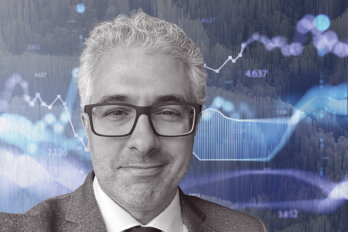In a recent interview with New Yorker editor David Remnick, E. Jean Carroll was asked whether her legal victory against Donald Trump represented the former president’s long-awaited comeuppance. Her response captured the spirit of the moment: “I think it just may be.”
She appeared tentatively hopeful. The interview was published two and a half weeks after a jury found Trump had sexually abused Carroll. Finally, a court of law had nailed Trump for his frequently repulsive behaviour toward women. Just thirteen days after that verdict, he was indicted on thirty-seven criminal charges, including conspiracy to obstruct justice. He could face up to twenty years in prison if convicted on all charges. And this week he was indicted once again: four more counts for attempting to upend the 2020 presidential election results.
Some of his most prominent allies are also in trouble. In April, Tucker Carlson was fired from Fox News, excused from the show that bore his name and which was, for a time, the most watched cable news program in history. And in May, George Santos, a Trump-aligned congressman whose myriad lies about his biography have made international headlines, was charged with a slew of crimes, including wire fraud and money laundering.
I’ve taken pleasure in watching Trump and those who propped him up finally face some kind of reckoning. If a progressive’s aim is to defeat the enemies of progress, then we’ve lurched ahead in the war against injustice. Why shouldn’t I savour these wins?
What I’m experiencing is schadenfreude, a German term for the pleasure we derive from the misfortune of others. There isn’t a precise English equivalent. Sadism comes close, but the sadist gets off on inflicting pain. As Tiffany Watt Smith wrote in the Guardian, schadenfreude is a spectator sport.
And who is a better target for schadenfreude right now than Trump? A man who won the presidency by painting Hillary Clinton as a criminal, who spent every day of his presidency punching down on those with the least privilege, who has arguably fostered more division and vitriol than any other figure in my lifetime. Naturally, his defeat, which for a long time seemed impossible, will come with a tasty shot of pure dopamine.
But what happens when that dopamine subsides? Even if Trump goes to prison for the rest of his life, and even if every single one of his allies were to join him there, the world they helped usher won’t immediately disappear. In twenty states, gender-affirming care has been banned for people under the age of eighteen. That situation directly affects more people than Trump’s indictment ever will. The Supreme Court has been stacked with Trump-appointed conservative justices and—no matter Trump’s fate—it will likely remain so for the foreseeable future.
Canadian progressives have their own political opponents. In New Brunswick, Bill Hogan, the minister of education and early childhood development, recently amended a policy so that teachers will no longer need to respect their students’ preferred pronouns, a move that pro-trans advocates lambasted. Alberta premier Danielle Smith, who secured a decisive majority in the election in her province in May, compared vaccinated people to Adolf Hitler’s followers (she later apologized for those comments). Quebec premier François Legault also won a comfortable majority after implementing controversial policies like Bill 21, which bars people working in public positions from wearing religious garments, and which has most acutely affected Muslim women. Most worrisome of them all is Pierre Poilievre, a hard-core partisan with a populist flair who, based on the latest data, is leading opinion polls.
It would be easy to take to social media and pine for the downfall of these politicians. But schadenfreude is not progress. Progress, for me, has always been a positive word. It conjures the principle of the good fight. It implies an aspirational desire to do good by others, not a thirst for retribution. Progress is justice for marginalized peoples which, for starters, looks like material reparations. It is an unwavering recognition that what a human can be is fluid, and it’s a commitment to securing equality and equity for all, even if someone’s life experience or identity is different or unfamiliar. For some, it can look like ousting conservatives and voting progressives into power, but electing a certain kind of politician from a certain section of the political spectrum surely offers an inadequate measure of progress.
There is no political capital in schadenfreude. Things can improve if we demand improved treatment from our governments through activism and collective action and vocal criticism and votes, but more lasting change will arise if we cultivate an environment where basic human decency is not up for debate. Progress is rarely as visible and concrete as a court decision. It is slow and difficult to measure but always, even in small ways, in motion.
In June, a San Diego library suddenly found itself out of books to place in its Pride Month display. The mystery soon unravelled: the library received an email from anti-LGBTQ community members who said they had checked out nearly all the queer and trans books from the library. They threatened to hold the books hostage unless the library expelled them from its catalogue. But after the story was reported in the local paper, something wonderful happened. Boxes on boxes full of replacement books arrived at the library, and the system received a $30,000 infusion to buy more LGBTQ books and expand its queer-friendly programming, including drag queen story hours. Half that money came from individual donations, and the other half came from the city government.
There will always be people dedicated to the cause of intolerance. But it doesn’t seem like a plausible or efficient aim to try and convert or exact revenge on each and every one of them. Let San Diego be a model: we can only move forward if we spend our time and energy and resources drowning hate with love.





